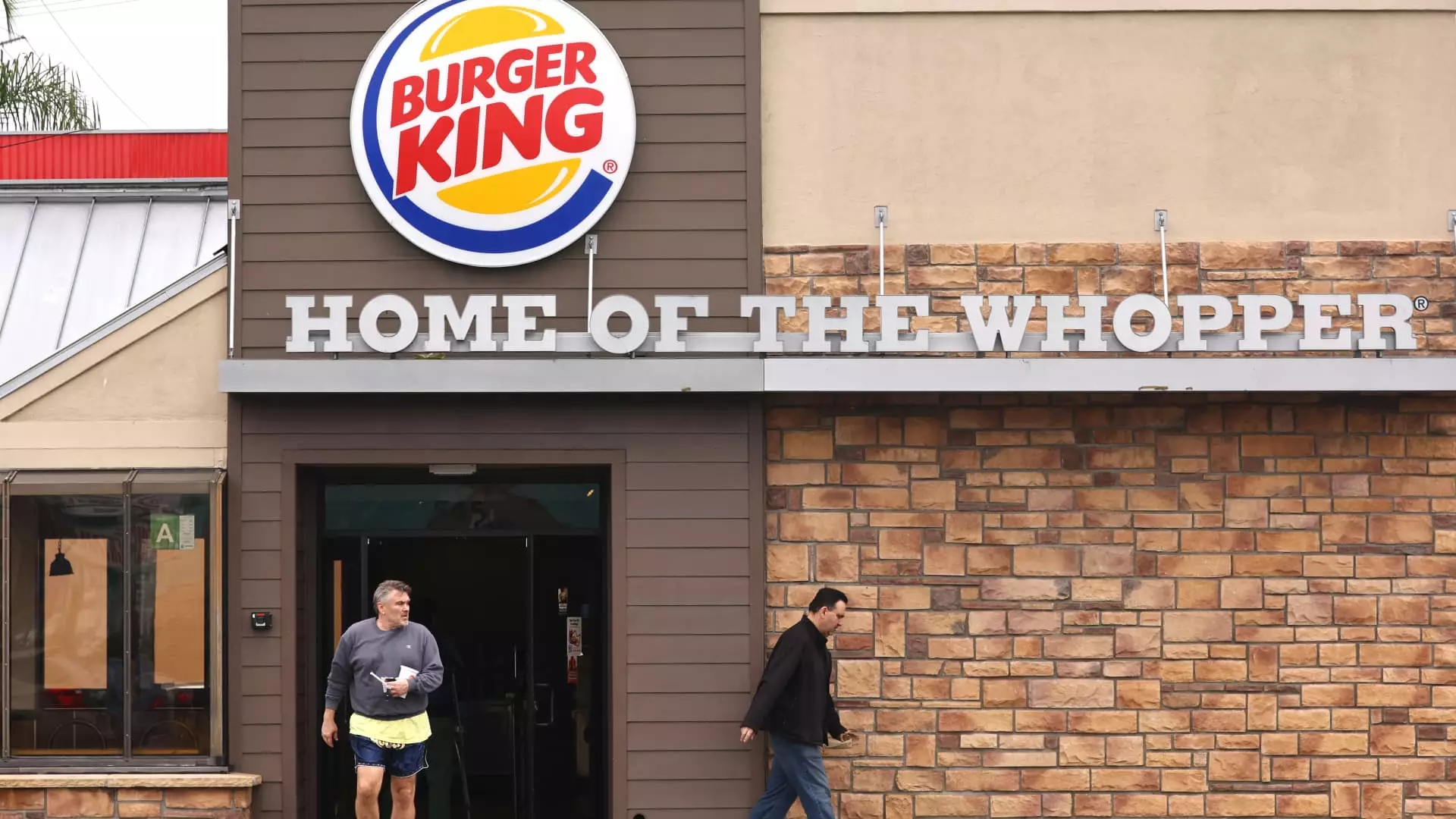Restaurant Brands International (RBI) has recently unveiled its financial results for the fourth quarter, showcasing a mixed bag of successes and challenges. With same-store sales growth of 2.5%, the fast-food giant is largely buoyed by significant contributions from its popular chains—Burger King and Popeyes. This growth is noteworthy, especially considering the overall competitive landscape in the fast-food industry and the ongoing pressure from inflationary costs and changing consumer preferences.
Despite a decline in its net income—from $726 million reported a year earlier to $361 million—RBI’s adjusted earnings per share came in at 81 cents, exceeding estimates by LSEG slightly. This figure indicates underlying resilience, especially when excluding corporate restructuring costs and other factors affecting profitability. Revenue reached $2.3 billion, showcasing a substantial 26% increase year-on-year, which is primarily driven by strategic acquisitions made over the past year.
Segment Performance Highlights
In terms of segment performance, RBI’s diversified portfolio is evident. Particularly, Burger King’s U.S. operations reported a respectable same-store sales growth of 1.5%, surpassing the projected 0.8%. This finding is significant as the chain has been actively working on its turnaround strategy, marking a positive shift in consumer sentiment and operational performance.
Popeyes also faced its challenges, but managed to reverse its previous quarter’s declines with a marginal same-store sales increase of 0.1%. Perhaps most striking, however, is the performance of Tim Hortons, which reported a robust 2.5% growth in domestic same-store sales. This Canadian coffee chain remains a cornerstone of RBI’s revenue structure, contributing over 40% to its overall quarterly revenue. Additionally, the international market segment reported promising growth at 4.7%, outstripping expectations, thanks in part to enhancements in customer experiences at both Burger King and Popeyes locations.
Strategic Growth and Investment Plans
RBI’s aggressive strategy to expand its footprint is evident as it has opened 1,055 new restaurants over the last year, representing a 3.4% growth in overall locations. This expansion speaks to the company’s commitment to scaling its operations amidst a backdrop of fluctuating market conditions and fierce competition. Forward-looking, RBI aims to invest between $400 million and $450 million in consolidated capital expenditures in the coming years, signaling a strong confidence in its growth trajectory and potential to enhance profitability.
While Restaurant Brands International encounters both growth and challenges within a highly competitive landscape, the latest quarterly results indicate a positive trajectory. The company’s focus on acquisitions, enhanced operational efficiencies, and strategic investments position it favorably for future growth. Nevertheless, maintaining momentum and addressing existing challenges will be crucial for sustaining long-term investor confidence and operational success.

